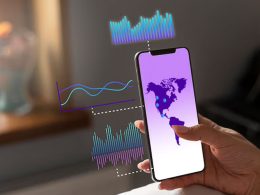Understanding the Role of ChatGPT in the World of Economics
ChatGPT, an artificial intelligence language model developed by OpenAI, is transforming the world of economics through its advanced natural language processing capabilities. As the use of AI becomes increasingly prevalent in the financial industry, ChatGPT is quickly becoming a game-changer. As the world becomes increasingly digital, the intersection of technology and economics has become more apparent.
One example of this intersection is the rise of chatbots like ChatGPT, which are becoming more prevalent in various industries, including finance and economics. But what does ChatGPT have to do with economics? In this article, we’ll explore how chatbots like ChatGPT are being used in the field of economics, and how they could impact the industry in the future.
What is ChatGPT?
Before we delve into the topic, it’s important to understand what ChatGPT is. ChatGPT is a type of chatbot that uses artificial intelligence to simulate a conversation with a user. It is powered by the GPT (Generative Pre-trained Transformer) model, which allows it to understand and generate human-like responses to user queries. ChatGPT was developed by OpenAI, an artificial intelligence research laboratory consisting of some of the brightest minds in the field. The chatbot has been trained on a vast corpus of text data, including books, articles, and websites, which allows it to generate responses to a wide range of topics.
How is ChatGPT being used in economics?
One of the main areas in which chatbots like ChatGPT are being used in economics is customer service. Many financial institutions are now using chatbots to provide 24/7 customer support to their clients. These chatbots can answer frequently asked questions, provide information about products and services, and even handle simple transactions. This has several benefits for financial institutions. Firstly, it reduces the need for human customer service representatives, which can be expensive to hire and train. Secondly, chatbots can handle a much larger volume of queries than human representatives, which means that customers can get their questions answered more quickly.
Chatbots are also being used in the field of investment management. For example, some investment firms are using chatbots to provide personalized investment advice to their clients. These chatbots can analyze a client’s financial situation, investment goals, and risk tolerance, and then provide tailored advice on how to invest their money. This has the potential to democratize investment management, making it more accessible to a wider range of people. By using chatbots to provide personalized investment advice, investment firms can reach clients who might not otherwise be able to afford the services of a human financial advisor.
The future of chatbots in economics
While chatbots like ChatGPT are already being used in various areas of economics, there is still a lot of potentials for them to be used in new and innovative ways. For example, chatbots could be used to automate various tasks in finance and accounting, such as data entry and analysis. Chatbots could also be used to improve financial education. By providing personalized advice and information to users, chatbots could help people to better understand financial concepts and make more informed decisions about their money.
Of course, there are also potential risks associated with the use of chatbots in economics. One concern is that chatbots could perpetuate biases that already exist in the industry. For example, if a chatbot is trained on data that is biased against certain groups of people, it could inadvertently provide biased advice to users. Another concern is that chatbots could be used to automate jobs that are currently done by humans, which could lead to job losses in the industry.







